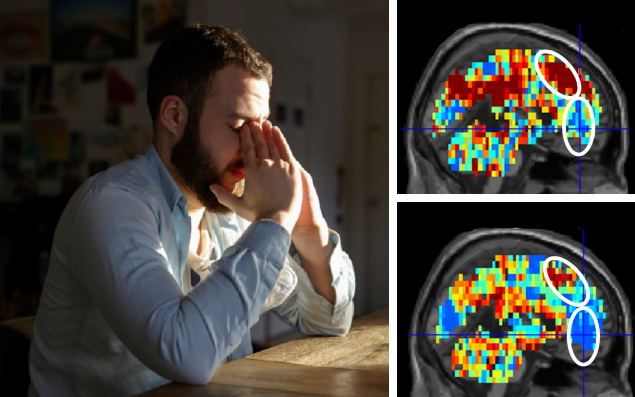A million people die by suicide every year. The ability to predict suicide is still imperfect as people find it difficult to talk about the subject. Scientists have trained a computer program to identify people with suicidal thoughts based on their brain scans. It is not a large study and only a limited number of people participated, but it might open new avenues in the future and the research might serve as a cornerstone for future developments.
The experiment consisted of recording brain activities of two different groups of people (17 each). One who had suicidal thoughts, and the other one that didn’t. Both the groups were asked to read 30 words, some of them were positive like “Bliss” while the others were negative such as “cruelty”.
Our brain has a different response for different words and fires off neurons in a specific way related to that word. Measuring these specific patterns is usually more accurate than other broad ranged brain studies. This is the reason this test had more than 90% accuracy.
The Researchers found that the responses to six words “death,” “trouble,” “carefree,” “good,” “praise,” and “cruelty” showed the biggest differences between the two groups of participants. So, they made a machine-learning algorithm for these results and told the program which neural activation patterns came from which group. Then they gave the result of the missing person to the machine and it guessed which group of people the person belonged to with a 91% accuracy.
The same experiment was repeated to guess if the person belonged to the group that had tried to commit suicide before or the one that hadn’t. This time the machine was successful 94% of the time. Blake Richards, a neuroscientist at the University of Toronto, says the results are interesting, but may not be strong enough to ensure the usefulness of the test for diagnosis. And the activity patterns are still based on correlation, not causation. “There is undoubtedly a biological basis for whether someone is going to commit suicide,” he says. “There’s a biological basis for every aspect of our mental lives, but the question is whether the biological basis for these things are sufficiently accessible by fMRI to really develop a reliable test that you could use in a clinical setting.”
Since it is not 100% accurate, it can not serve as a basis for clinical testing. However, there was only a small group of people involved in this experiment and maybe running the same experiment with a greater number of people will yield different results. Fingers crossed!

